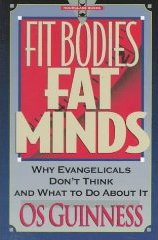The British Humanist Association (BHA) is on the move again. Following on the heels of their ad campaigns encouraging Londoners to become more comfortable with atheism and to recognize that atheism does not equate to immorality, the BHA has launched a new campaign to get British citizens to think differently about filling out census materials.
In 2011 residents of Britain will experience crashing waves of census workers seeking to gather accurate data about the nation. Prior census data indicated that 37.3 million Brits self-identify as “Christian,” and according to the BHA, “public figures have spent the last 10 years claiming that most people in this country are religious to justify the money or attention spent on these communities.”* In the upcoming census, the BHA has keenly recognized an opportunity to engender social change. They are seeking to affect census results by encouraging “non-believers and the seriously lapsed” to check the “no religion” box instead of the default designation “Christian.”
Due to the dramatic difference between the number of those who self-identified as “Christian” on the previous census and the actual weekly church attendance numbers, the BHA believes that the number of “non-religious” citizens has substantially increased. In addition, the BHA holds that the 2001 census data itself reflects more “non-religious” citizens than prominent public figures have touted. The religious question on the 2001 census, which was voluntary, was skipped, missed, or answered with “non-religious” by 22.9% of respondents, that is, roughly 13 million people. And, the figure of 13 million “exceeded the Muslim, Jewish, Sikh and Hindu populations combined.” Given these 13 million individuals plus the belief that more people are comfortable adopting the “non-religious”or “atheist” label, the British Humanist Association feels justified in initiating its newest ad campaign.
The BHA asserts that it is necessary for citizens to identify themselves accurately because religious identification directly affects the distribution of funds, the nature of education, and the participation of religious figures in politics. The BHA claims that those who absentmindedly classify themselves as “Christian” “have contributed to data used to justify an increase in the number of ‘faith’ schools, the public funding of religious groups, keeping Bishops in the House of Lords as of right, and the continuation of compulsory worship in schools.” For the BHA, they hope their ad campaign can counter-act this absentmindedness through mindfulness thereby recasting the social actions of the nation.
So, beyond being informative, what does this new activity by the BHA have to do with Liberal Evangelicals? Is it possible that their activity may serve as an example for Liberal Evangelical action? Should Liberal Evangelicals begin launching advertising campaigns across the US? Not necessarily; but, it seems that we may be able to learn from their strategy of identifying actions that are relatively simple, yet have large scale affects. Is not the keenness manifest in this campaign inspiring? Can it not be an inspiration and a model for Liberal Evangelical analysis and action? Can it not add fuel to the fire of current Liberal Evangelical action, that is, contribute to our motivation to find astute means for actualizing our social vision? It seems so.
* From the article, “Humanists Launch ‘no religion’ Census Campaign” by Riazat Butt for The Guardian.
Links
To read “Humanists Launch ‘no religion’ Census Campaign” by Riazat Butt click here.


